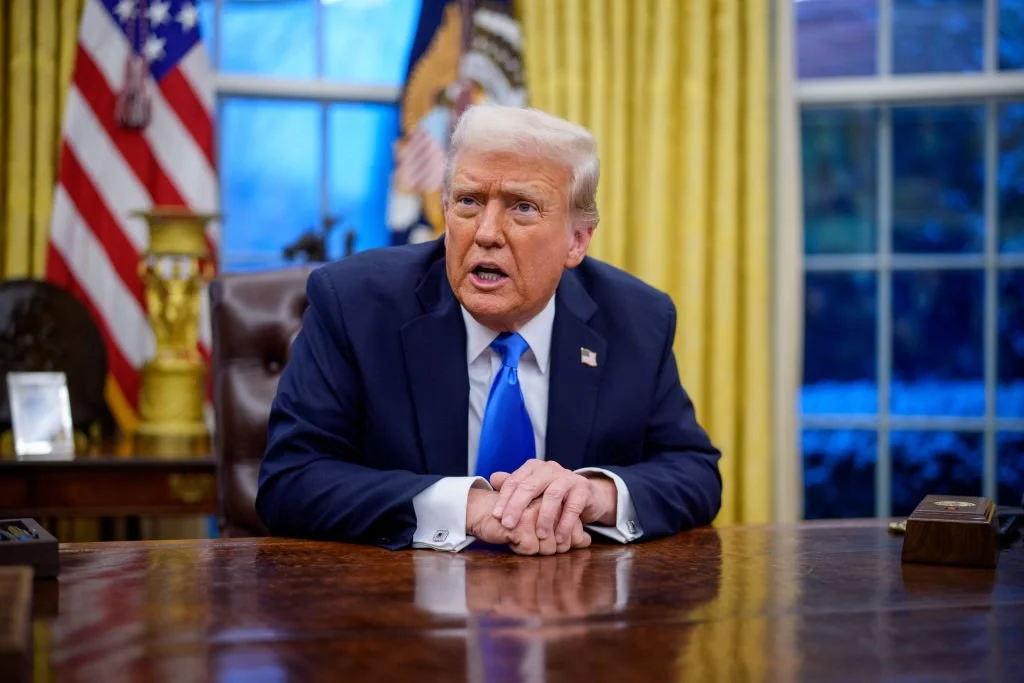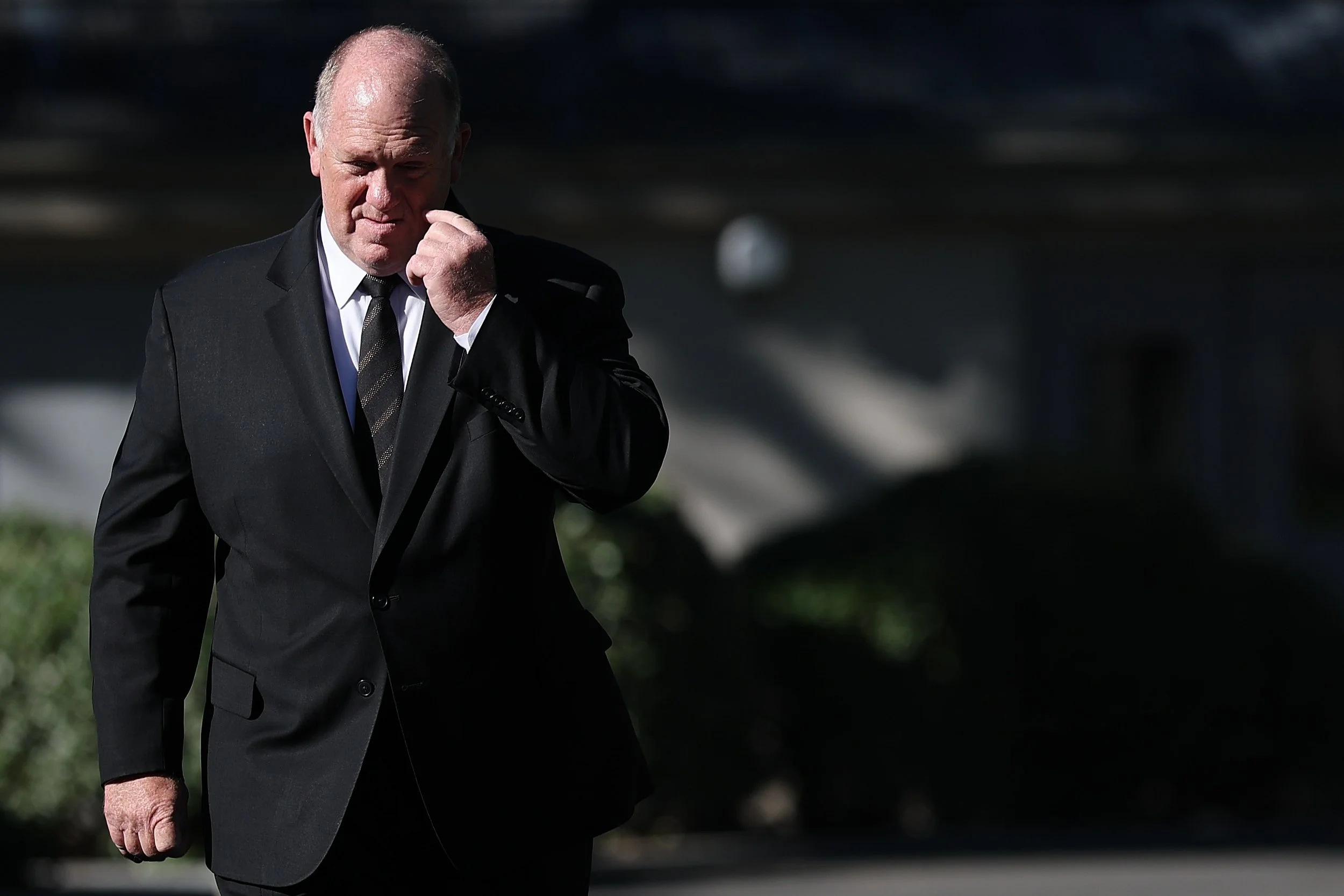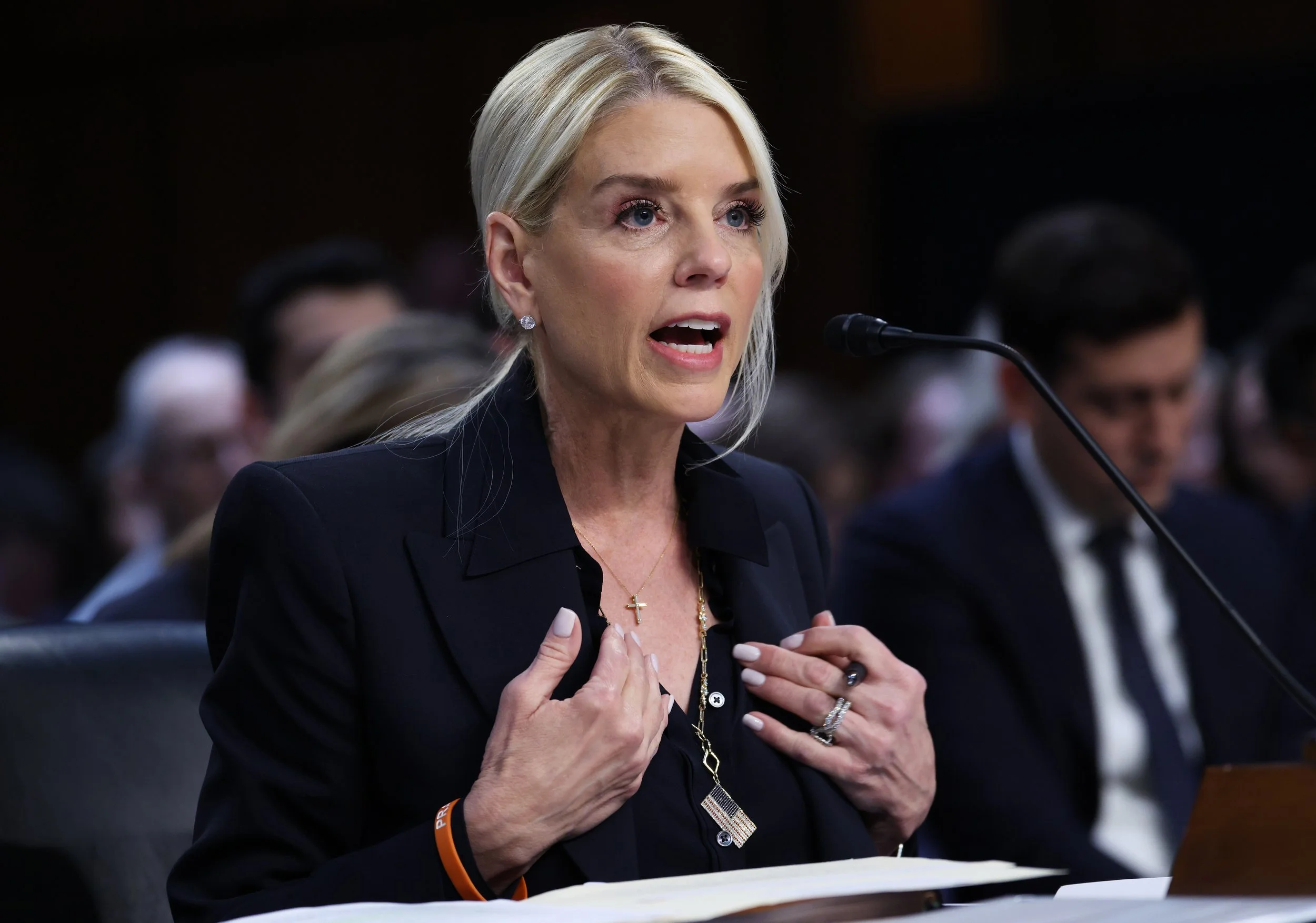Trump Goes To Capitol Hill To Pressure House GOP Holdouts To Get In Line On His Budget Bill
President Trump met with House Republicans on Tuesday to urge conservative holdouts to support his signature budget legislation that would deliver massive tax cuts while also adding more than $3 trillion to the national debt over the next decade. The debt currently sits at about $37 trillion.
He might have told the press the meeting was one of “love” and “unity,” but bhind closed doors he took a tougher approach, warning congressional Republicans not to “f*ck around” with Medicaid. A number of Republicans have been pushing for major cuts to the program in order to pay for the tax bill.
House Speaker Mike Johnson (R-LA) has said he wants his chamber to pass the bill before the Memorial Day holiday weekend, with a key vote set to happen tonight around 1 am ET Wednesday.
INSIDE THE BILL
Trump’s “One Big Beautiful Bill Act” spans 1,116 pages and would make permanent Trump’s 2017 tax cuts, increase military and border security spending and create $1,000 “MAGA” accounts for newborns. To partly pay for that, the bill would cut spending on popular social programs like Medicaid.
In addition to making Trump’s 2017 individual tax cuts permanent, the bill would also end taxes on tips, overtime and some car loan interest by the end of 2028.
Republicans propose repealing Biden-era clean energy tax credits to offset lost revenue. Even with those cuts, the package’s net cost still still come to around $3.8 trillion.
THE GOP DIVIDE
Republicans are divided on the legislation. Some House conservatives say the bill doesn’t cut spending enough. Others are opposed to adding to the national debt, while still other Republicans from Democratic states want to increase the cap on state and local tax deductions. The bill has also faced bipartisan pushback over $625 billion in Medicaid cuts over 10 years and a provision requiring recipients to work or volunteer at least 80 hours per month - moves that could result in millions losing coverage.
Some fiscally conservative Republicans, including members of the super-conservative House Freedom Caucus, say the bill doesn’t cut enough, and adding to the debt is a nonstarter.
The nonpartisan Congressional Budget Office warns that more than 8 million Americans could lose health coverage if the law as it is currently written becomes law.
Sen. Josh Hawley (R-MO) is among Republicans opposed to cutting Medicaid, calling the move “reverse class warfare.” He said the bill will hurt the poor in order to help fund tax cuts for the wealthy.
Other SALT Caucus members, from high-tax blue states, are pushing to raise the proposed $30,000 cap on state and local tax deductions (SALT) for joint filers earning under $400,000. The current cap is $10,000.
The GOP can lose no more than three votes in both the House and the Senate. No Democrats are expected to vote “yes.” Rep. Thomas Massie (R-KY) says he is a no vote, so the GOP can only lose two more votes once it gets to the floor.
THE WHITE HOUSE WEIGHS IN
The White House claims the bill will save the government $1.6 trillion, but nonpartisan analysts project the bill could add as much as $5 trillion to the national debt over the next decade, depending on what Congress does down the road.
Trump stressed to GOP lawmakers that Medicaid cuts should target waste, fraud, and abuse.
On the SALT tax deductions, Trump told Republicans pushing for a higher cap to take the current deal and "move on."
WHAT’S NEXT
Even if the House can muster up the votes, the Senate would still need to approve the legislation, where some Republican opponents remain. Senate Majority Leader John Thune (R-SD) has said he’d like to pass the bill before July’s looming debt ceiling deadline.
If passed, the Senate will have a chance to make changes to the House bill. The key question is whether an amended version sent back to the House will still have enough support to pass.














